Where to Start
1 of 14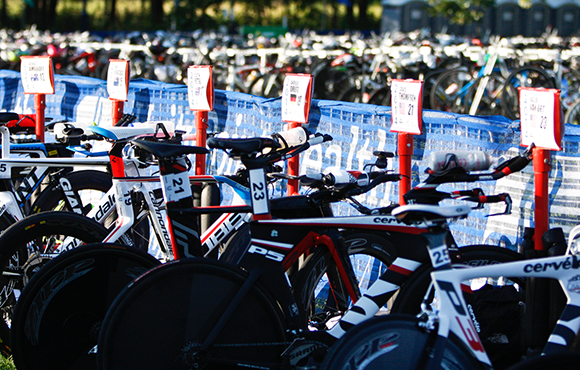
Photo/Phil Roeder, Flickr
While you should always find a method that works best for you, we like the approach of setting season goals, then planning your calendar to reach them. Once you know what you want to achieve, work backwards. "Talk out a plan with your coach," says Pro triathlete and USA Triathlon Certified coach John Kenny, of French Creek Racing. "Make sure you have plenty of time for planning."
Find:c
Your Next TriathlonDo Your Homework
2 of 14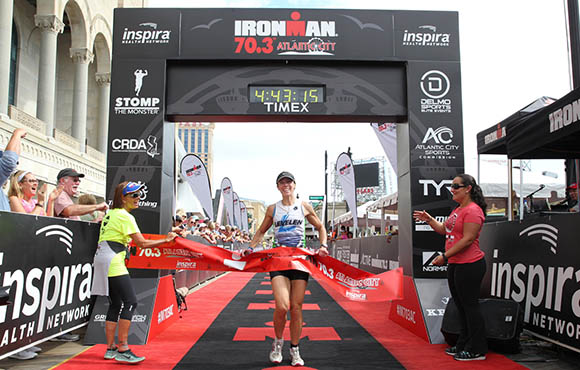
Photo/DelMo Sports
When it comes to selecting your goal race, Stephen del Monte, race director of IRONMAN 70.3 Atlantic City suggests evaluating what others have to say about a specific event, but to consider the shared opinion about a race over one individual's experience. Del Monte believes safety should be a major concern for athletes. If roads are closed to motor traffic it will ensure the safest environment and a better overall experience.
Find:c
Your Next TriathlonThe Big Picture
3 of 14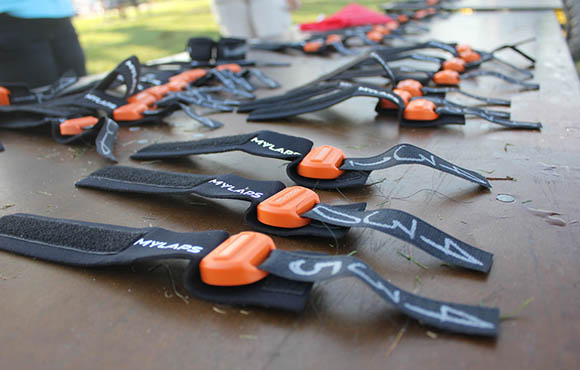
Photo/VisitCentralFL, Flickr
Once you've set goals and selected your main races, look at the big picture. Do a few shorter triathlons leading up to a 70.3 or a 140.6 to dial in transitions, practice pacing and experiment with nutrition strategies.
Find:c
Your Next TriathlonCreate a Calendar
4 of 14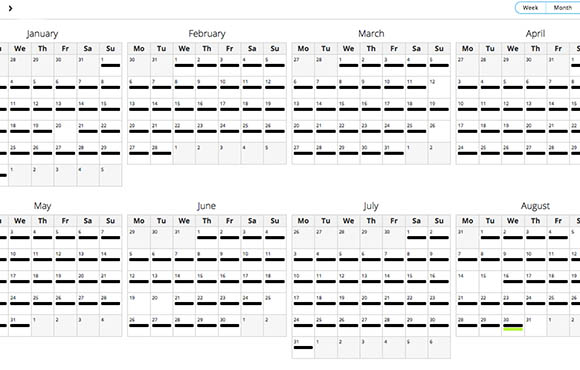
Photo/Greg Kaplan
Where can you find races to add to your calendar? Active.com is a great resource for finding not only triathlons but also cycling, running and swimming events to help you prepare for your goal race at the end of the season. For creating a training and racing calendar, use tools like Excel, Google Calendar or Garmin Connect to get organized.
Find:c
Your Next TriathlonSpeed It Up—to a Point
5 of 14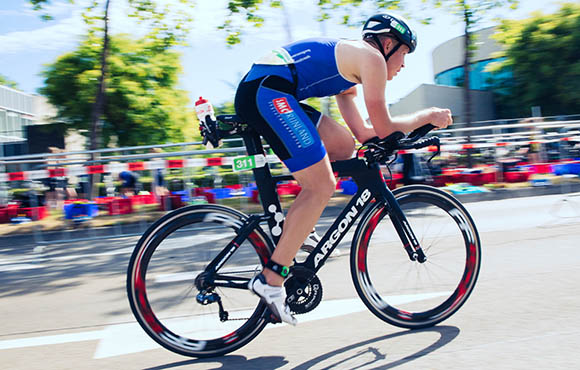
Photo/Renee Tijdink, Flickr
Darkhorsetri coach Steve Johnson, suggests adding intensity to your program a couple times a week—up to about 20 percent of your total volume, no matter what distance you race. Johnson, who has over 20 years of experience, encourages his athletes to pay attention to separating the easy work from the hard training. For optimal race performance, consider periodizing your training.
Find:c
Your Next TriathlonRecovery Is Key
6 of 14
If you race a lot throughout your season, make sure to plan enough recovery time between races, as well as throughout your training program. If you're racing sprint triathlons, you might be able to race consecutive weekends—or even back-to-back days—but you'll still need down time before you ramp your training back up. If you like to race long, plan about eight weeks of recovery following a 140.6 distance race.
Find:c
Your Next TriathlonTrain Your Weaknesses
7 of 14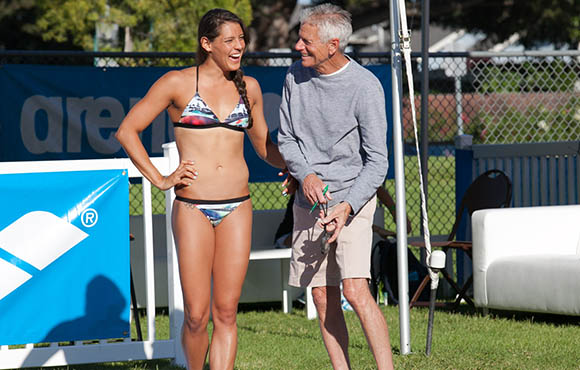
Photo/JD Lasica, Flickr
Of course, we all like to train the discipline we're best at, but this may be limiting your full potential. If you're a strong runner or savvy cyclist, improving your swim will make your bike and run even more efficient, as you'll expend less energy and get to T1 faster.
Find:c
Your Next TriathlonConquer Your Fears Throughout the Season
8 of 14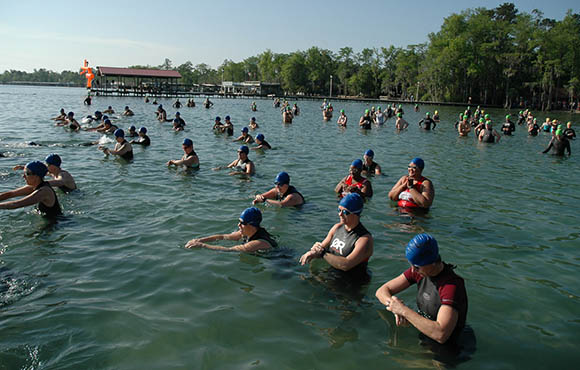
Photo/Cygnus921, Flickr
Laurie Hug, a retired ITU pro who is now a Philadelphia-based ASCA Level III coach and USA Triathlon Level II coach, feels strongly about the value of entering single-sport events as preparation for triathlons. Hug says to try a swimming-only race, such as "an open water swim or two to help get used to the bumping and close contact that can be expected in the swim leg."
Pro Tip: Signing up for an open water swim clinic early in the season is also beneficial for less experienced swimmers or those without organized races in your area.
Find:c
Your Next TriathlonRace Your Strengths
9 of 14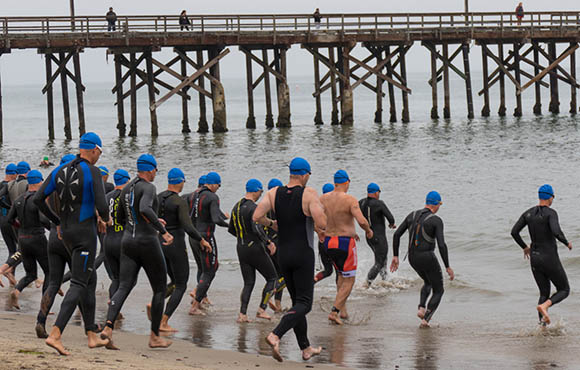
Photo/Craig Howell, Flickr
If you're a strong swimmer, look for races that are not wetsuit-legal, are in the ocean or have a longer swim than you're used to. If you have a cycling background, look for events with technical courses or have plenty of elevation changes. If you're a strong runner, look for races with lake swims and flatter bike segments, so you can unleash your run on relatively fresh legs.
Find:c
Your Next TriathlonEvaluate What You Want to Achieve
10 of 14
Photo/Greg Kaplan
Perhaps your main goal for this season is more about wanting to do good for the community rather than about times or medals. Race director and IRONMAN World Championship age grouper Midge Kerr suggests participating in a triathlon charity event like the Islandman Sprint Triathlon, to swim-bike-run for a good cause. Kerr encourages athletes to bring a pal and share the experience. Whether you're a newbie or a veteran, racing with a friend can make the whole event even more memorable.
Find:c
Your Next TriathlonPlan for Convenience
11 of 14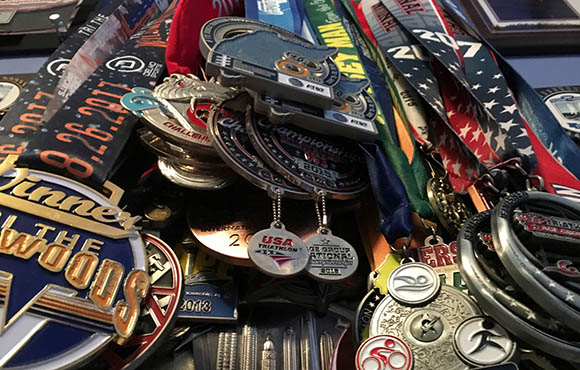
Photo/Greg Kaplan
Can you sneak in a sprint tri in the morning and make it to the family barbecue in the afternoon? If you're new to triathlon, doing a race that is convenient is a great way to have a low-stress practice before the big day. If there is a local race series, consider signing up to support your local race scene, as well as get in first-hand experience.
Find:c
Your Next TriathlonBe Adaptable
12 of 14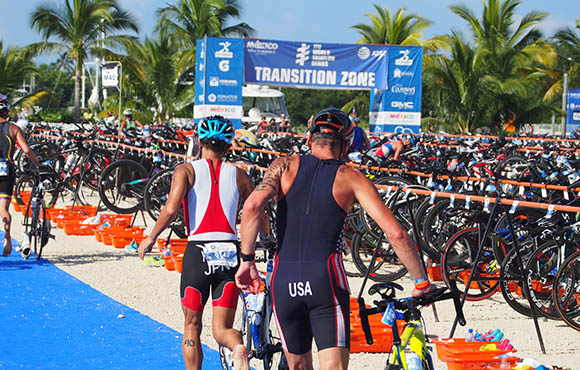
Photo/Greg Kaplan
It's unusual to have a perfect season. Life happens and often does not cooperate with training and racing. If you're sidelined with an injury, make the best of the time off and stay involved by volunteering at a race. If you have unplanned travel for work, which may make cycling or swimming more challenging, focus on running.
Pro Tip: When selecting bigger, more expensive races—especially as priority races—research refund or deferral policies, or if entry fee insurance is offered.
Find:c
Your Next TriathlonHave Fun
13 of 14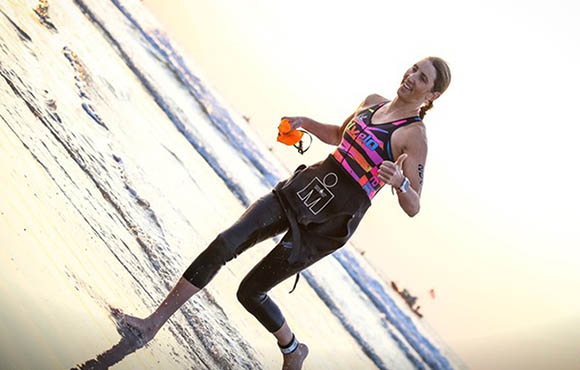
Photo/Greg Kaplan
No matter what you plan for the season, remember to have fun. Set up your training (maybe with the help of a coach) to be interesting, engaging and realistic. Buy gear that excites and inspires you, like new running shoes or a new bike (n+1, remember?). Also make sure to enter races that excite you and that will be memorable. Smile and laugh while you're racing. Share your experience with friends and family. Throw your hands up as you cross the finish line!
Find:c
Your Next TriathlonAbout the Author


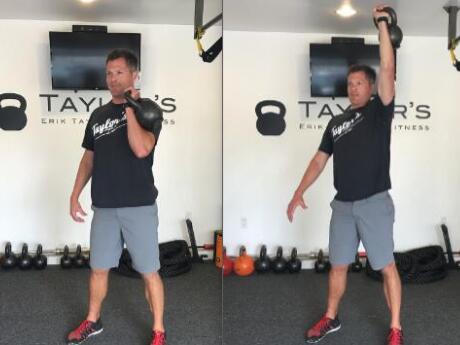



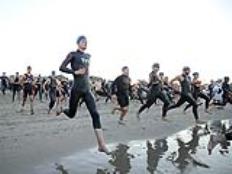

Discuss This Article